Iraq attacks kill 60, raise sectarian fears
At least 32 people killed in blasts in Baghdad where 10 explosions tore through mainly Shia neighbourhoods.
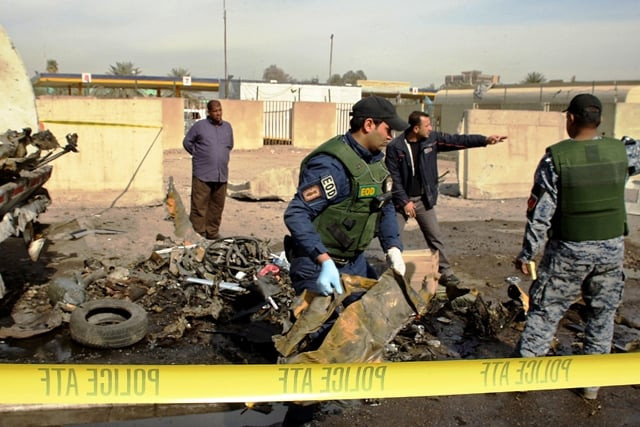
The attacks that appeared to pitch al Qaeda-linked Sunni Muslim militants against Shias raised fears of a return to the widespread sectarian carnage that tore Iraq apart and cost thousands of lives in 2006 and 2007.
The violence breaks weeks of relative calm as Shia Prime Minister Nuri al-Maliki and Sunni leaders have sought to resolve a political crisis that followed the US withdrawal.
At least 32 people were killed in blasts in Baghdad where 10 explosions tore through mainly Shia neighbourhoods during rush hour and other attacks targeted police patrols, commuters and crowds gathered in shopping areas.
More than a dozen blasts and attacks hit other cities across Iraq from Mosul in the north to Hilla, south of Baghdad, many of them targeting police.
The violence was aimed at Shia neighbourhoods and security forces, a frequent target of Sunni insurgents. Iraqi officials had predicted such groups would try to stir sectarian tensions with attacks after American forces went home.
While violence has ebbed since the height of the war, Sunni insurgents affiliated to al Qaeda are still capable of large-scale assaults, often targeting government buildings and police in an attempt to show Maliki cannot guarantee Iraqis' security.
In Thursday's violence, one car bomb in the capital killed at least nine people and wounded 27 in the upmarket Karrada neighbourhood, hurling shrapnel into the next street and blowing out glass from nearby buildings.
At least two other blasts hit Karrada, including another car bomb attack that killed one person, police said. Witnesses saw at least four wrecked cars full of shrapnel and bloodied seats near a popular ice-cream shop.
In at least three Shia neighbourhoods in Baghdad, nine policemen were killed, and in the capital's northwestern Kadhimiya district, a car bomb killed six people when it struck a street lined with restaurants.
Another car bomb targeting a police patrol in the mixed Mansour neighbourhood killed two people. Twin roadside bombs killed two people and wounded 9 in a mostly Shia district of the southern Doura neighbourhood, police said.
In the biggest attack outside the capital, a car bomb killed seven people and wounded 33 in the town of Balad, north of Baghdad.
Iraq's political crisis erupted after Maliki moved against two senior members of the Sunni-backed Iraqiya political bloc shortly after the US troop withdrawal in December, prompting a walkout by Iraqiya lawmakers that lasted until late January.
Tensions eased as Sunni, Shia and Kurdish blocs tried to negotiate an end to the crisis. But a week ago a panel of judges detailed 150 attacks they said were carried out by death squads under Sunni Vice President Tareq al-Hashemi's command. Maliki sought Hashemi's arrest in December.
Hashemi, who has taken refuge in the autonomous region of Kurdistan, has denied accusations made against him, dismissing them as part of a plot to destroy Maliki's opponents.
The crisis was followed by a wave of attacks in December and January on Shia neighbourhoods, including a suicide bombing on a Shia funeral procession that killed 31 in Baghdad and an attack on Shia pilgrims that left 53 dead in Basra.
Violence had ebbed until Sunday when a suicide car bomber killed 19 people in an attack on a Baghdad police academy.

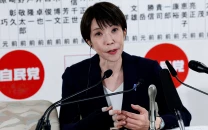
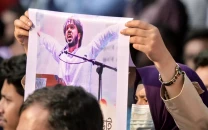
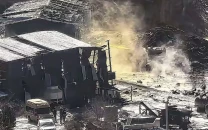
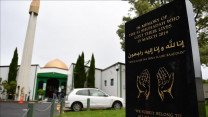
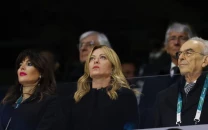
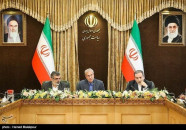












COMMENTS
Comments are moderated and generally will be posted if they are on-topic and not abusive.
For more information, please see our Comments FAQ